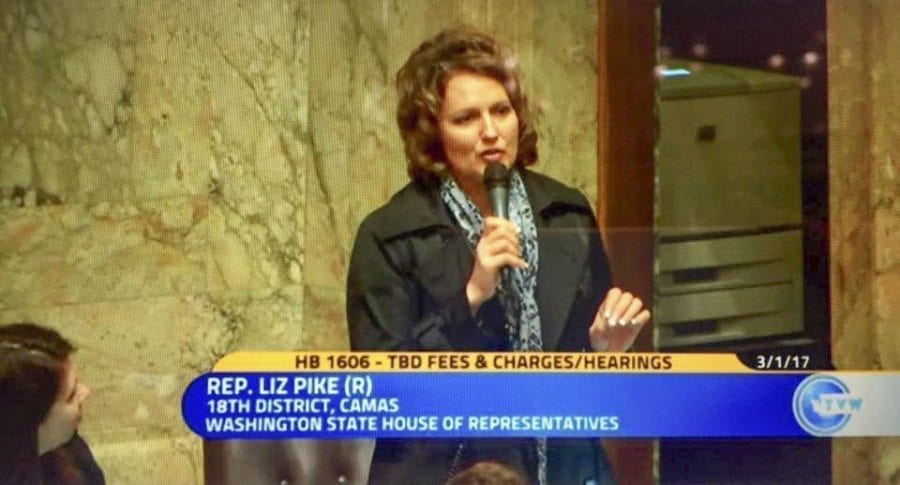A measure that would require Transportation Benefit Districts (TBDs) to hold a public hearing prior to voting to impose a charge or fee cleared the state House of Representatives Wednesday.
Cities and counties can establish TBDs with independent taxing authority to provide transportation improvements within that district. Under current law, TBDs have independent taxing authority for a variety of revenue sources, some of which require voter approval. However, TBD board members can vote by a majority to raise certain revenues without voter approval, including imposing up to $50 in local annual vehicle fees and transportation impact fees.

For example, Battle Ground previously formed a TBD and the members of that board — made up by Battle Ground City councilors — approved a $20 automobile license fee. This year, the Battle Ground TBD board members tabled a discussion to raise that fee from $20 to $40.
Rep. Liz Pike, R-Camas, who authored House Bill 1606, says citizens should have a say before their local TBD decides to implement revenue-raising measures.
“A number of constituents have complained to me that TBDs have very little transparency when it comes to voting for tax and fee increases,’’ said Pike, a member of the House Transportation Committee. “I believe it is imperative that TBDs hold public hearings to allow for citizen input before raising car tab fees and other new taxes that could be imposed with or without a public vote. That’s what this bill would require. This would increase transparency and boost citizens’ voices in the process — all of which makes for better, accountable government.”
The bill passed the House, 98-0. It now goes to the Senate for further consideration.




